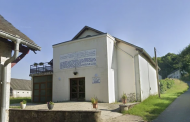Indiana Khaled
It seems that the regime of Turkish President Recep Tayyip Erdogan is no longer constrained by any voices that expose its disastrous failure in managing the country’s affairs or reveal the huge losses witnessed by Turkish forces that have stepped into Libya without any justification except to carry out Erdogan’s ambitions to steal Libyan oil and expand his influence in the Mediterranean.
In response to a campaign of arrests of Turkish journalists, opposition Republican People’s Party (CHP) leader Kemal Kılıçdaroglu called for the release of two journalists detained for publishing news about the killing of a Turkish intelligence agent in Libya and his secret burial amid a blackout from the regime, which has prepared the journalists for an indictment, demanding they be imprisoned for periods ranging between 7 and 18 years.
On April 29, Turkish newspaper Yeniçağ quoted the CHP leader as saying, “Whatever they do, we will crown this republic with democracy and freedom. The law has failed the test, and they should stand by justice and laws, not the other way around.”
He also stressed the need to respect the press and journalists, asking, “Is it possible that several journalists are arrested because of news, and that the public prosecutor demands that they be imprisoned for these periods?”
The Committee to Protect Turkish Journalists has always expressed concern about pressures targeting journalists in Turkey and violations of freedom of expression, but Erdogan rejects these criticisms.
Silencing voices
On April 17, the public prosecutor in the capital, Ankara, sent a memo to parliament to lift the immunity of Umit Ozdag, a member of the opposition IYI Party, regarding his disclosure of information about the killing of Turkish intelligence agents in Libya.
According to the pro-Erdogan newspaper Sabah, the prosecution demanded the immunity of the parliamentarian be lifted in order to investigate him within the framework of the Law on the State Intelligence Services and the Turkish National Intelligence Organization.
According to the newspaper, the opposition MP held a press conference at the Turkish parliament in February, during which journalists shared information about the killing of intelligence officers in military operations in Libya. Ozdag was charged with violating Article 27 of the Law on the State Intelligence Services and the Turkish National Intelligence Organization No. 2937, which provides for imprisonment for a period of 4 to 10 years against any person who receives, supplies, steals and produces false information and documents about the duties and activities of the intelligence services.
In March, the Turkish security forces launched a campaign of arrests against a number of journalists who published a video report on the opposition OdaTV website about the burial ceremony of a killed intelligence officer in Libya that took place amid great secrecy.
The security forces pursued the journalists on charges of “violating the intelligence law” due to revealing the identity of an intelligence agent and publishing his name.
Getting rid of agents
The Swedish website Nordic Monitor reported on Thursday, April 20 that Colonel Okan Altinay, a retired Turkish intelligence officer less than a year ago, was suddenly summoned to service and then sent to Libya.
The goal of sending the retired colonel to Libya is to get rid of him, as he was a key witness with wide knowledge of the Erdogan regime’s ties to terrorists and extremist groups, according to Nordic Monitor.
The website quoted what it described as sources close to military intelligence saying that the Turkish National Intelligence Organization (MIT) was planning to assassinate the officer, who was killed in a bombing in the port of Tripoli, where he was overseeing the transfer of arms shipments to Fayez al-Sarraj’s government, until media reports and activists exposed his secret burial.
During a speech in the city of Izmir on February 23, the Turkish president admitted that a number of his forces in Libya were killed. His statements sparked widespread criticism throughout Turkey at the time, as the opposition asked him to reveal the true number of Turkish soldiers who were sent to Libya.
The conditions of press freedom in Turkey have witnessed a significant deterioration since the failed coup attempt in 2016, as Erdogan’s regime uses a policy of silencing voices in order to cover up its failures, coinciding with the deteriorating economy and the outbreak of the corona virus, in addition to Turkey’s involvement in Libya and Syria.







































admin in: How the Muslim Brotherhood betrayed Saudi Arabia?
Great article with insight ...
https://www.viagrapascherfr.com/achat-sildenafil-pfizer-tarif/ in: Cross-region cooperation between anti-terrorism agencies needed
Hello there, just became aware of your blog through Google, and found ...